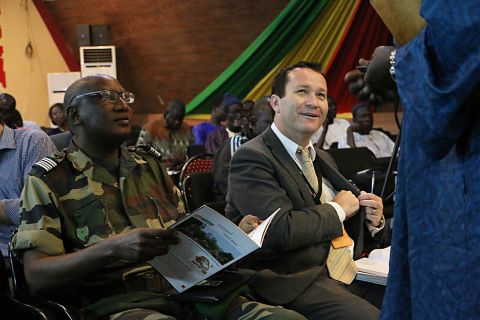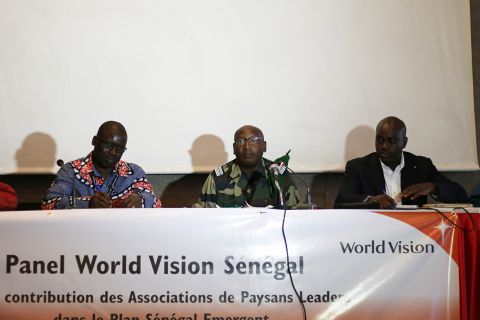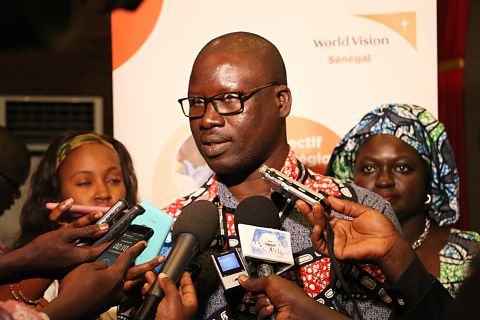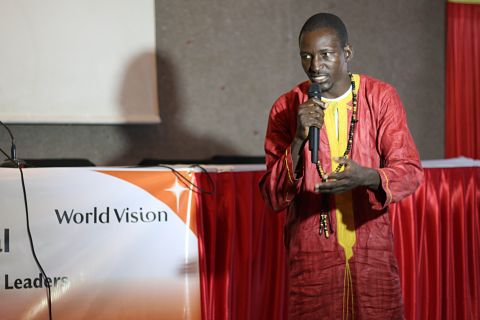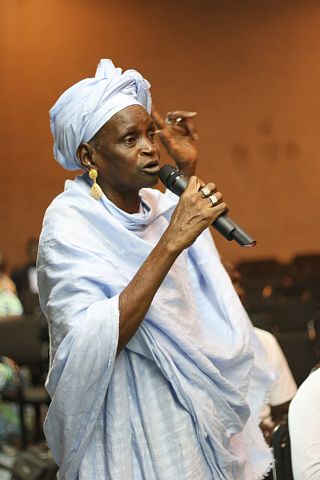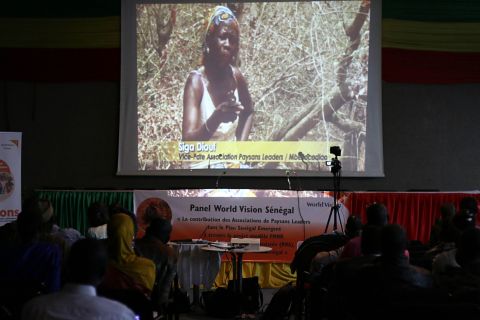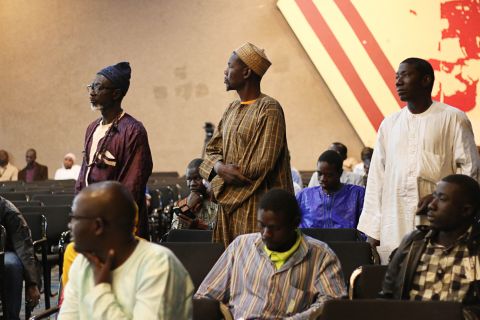Helping to securing better livelihoods through regeneration
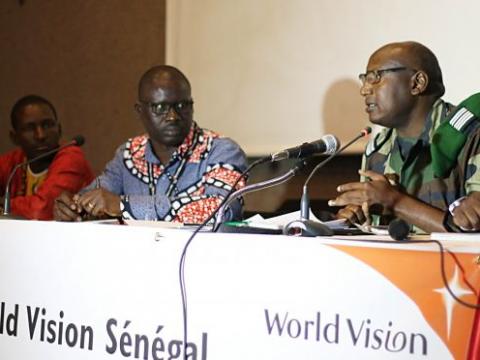
When it comes to resilience and livelihoods, World Vision Senegal works with communities to develop and adopt sustainable food production approaches and practices. Our interventions are based on programs that implement tried and tested model projects i.e. local analysis of value chains, environmental protection, implementation of savings and credit groups and management of disaster risks.
As part of the International Fair of Agriculture and Animal Resources FIARA, World Vision Senegal organised a panel on Farmer Managed Natural Regeneration (FMNR).
Farmer Managed Natural Regeneration (FMNR) is an agroforestry technique which consists of protecting and managing natural shoots and regrowth from tree stumps and shrubs in the fields. Furthermore, FMNR can help secure environmental resources, preserve the livelihoods of the populations in areas deemed vulnerable and this has an impact on all levels, both in households and in the food supply.
The panel comprised the National Director of World Vision Senegal, Dr. Andrew Catford, the representative of the Minister of Environment Colonel Baba Ba who is also head of the reforestation division of the Forestry Commission, Mamadou Lèye, Country Director of the Canadian Centre for International Studies and Cooperation (CECI), Cheikh Aliou Ba, representative of the leading farmers and Come Ndour, Resilience and Livelihood Advisor to World Vision Senegal.
The, panel facilitated the sharing of experiences on Farmer Managed Natural Regeneration (FMNR). In an effort to promote the benefits of FMNR, the Fair provided opportunities for model farmers who had succeeded well using FMNR techniques, to present the results of their efforts and work.
Contributions from key participants
Colonel Baba Ba, representative of the Minister of the Environment Abdoulaye Balde, participated in the panel: "Today we realize the interest and usefulness of the implementation of the FMNR, an assisted agro-forestry technology, developed in Senegal for several years. Many actors are involved in this sector, but World Vision has organized this event to engage and put in place a thorough reflection in order to contribute to the development of this activity."
The Colonel added that to ensure food security, production must increase. Two options are possible according to him: "increase the arable land with the same yield levels - which is not possible in Senegal, or increase the yield. This second option is better considered, but requires mineral inputs. Today unfortunately, mineral fertilizer is too expensive and all other forms of inputs or compensation have significant costs, while the purchasing power of farmers remains low. That is why the only solution is to use Farmer Managed Natural Regeneration (FMNR) for better regeneration of soils and increased yields."
The representative of the leading farmers Cheikh Aliou Ba thanked World Vision Senegal for the project initiative that allowed them to increase their production and therefore their food security and income.
Ms. Satou Mbow, a leading peasant from Kathiotte also asked the State to support World Vision Senegal in its mission.
Real evidence of impact
FMNR is both inexpensive and helps improve the environment and livelihood conditions of rural populations. In Senegal, comparative studies conducted by World Vision and the Senegalese Institute of Agricultural Research (ISRA) to compare millet yields in fields with and without FMNR systems confirmed yields (in terms of ears of corn harvested) from fields with FMNR were greater than those from fields without (767 kg / ha versus 296 kg / ha respectively). The project is implemented by World Vision Senegal in the areas of Kaffrine and Fatick.
The objective of World Vision Senegal is to see all children live in households free from hunger and able to withstand the shock. And to achieve this, one of the aspects to develop is the protection of environmental resources. It is in this context that World Vision Senegal has implemented this model project based on the FMNR since 2007. The aim is to build a foundation for sound economic development but also to address issues related to food insecurity. All stakeholders are confident that with the FMNR, soils are better protected and yields are increased.
